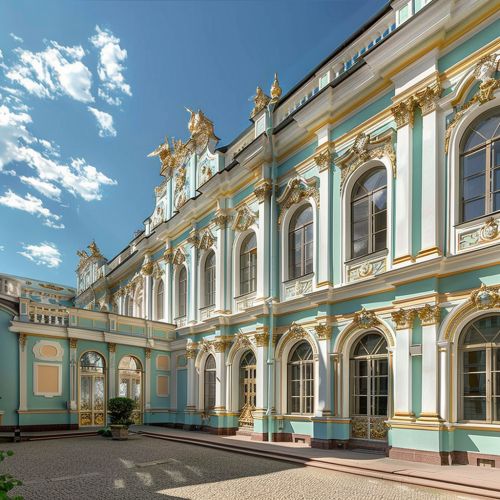Imperial Ballet School
History
The Imperial Ballet School was established in 1738 by Empress Anna Ioannovna, niece of Peter the Great. It was the first institution of its kind in Russia, and one of the oldest ballet schools in the world. The school was initially located in the Winter Palace in Saint Petersburg, and was later moved to the Anichkov Palace.

The school's early years were marked by a lack of formal structure and curriculum. However, this changed in the late 18th century when French ballet master Jean-Baptiste Landé was appointed as the school's director. Landé introduced a rigorous training program based on the principles of the French school of ballet, which emphasized elegance, precision, and grace.
In the 19th century, the school underwent significant changes under the leadership of Marius Petipa, a French ballet master and choreographer who is considered one of the most influential figures in ballet history. Petipa introduced the classical style of ballet to Russia, which became the foundation of the school's curriculum.
Curriculum and Training
The Imperial Ballet School's curriculum is based on the Vaganova method, a unique system of ballet training that was developed by Agrippina Vaganova, a former student and teacher at the school. The Vaganova method combines elements of the French and Italian schools of ballet with traditional Russian dance techniques.
Students at the Imperial Ballet School undergo a rigorous training program that includes classes in ballet technique, pointe work, character dance, historical dance, and pas de deux. In addition to dance training, students also receive education in academic subjects such as literature, history, and foreign languages.
Notable Alumni
The Imperial Ballet School has produced many notable alumni who have made significant contributions to the world of ballet. These include Anna Pavlova, Vaslav Nijinsky, George Balanchine, Rudolf Nureyev, and Mikhail Baryshnikov.
Legacy and Influence
The Imperial Ballet School has had a profound influence on the development of ballet in Russia and around the world. Its rigorous training program and high standards of excellence have produced generations of dancers who have gone on to achieve international acclaim.
The school's influence can also be seen in the widespread adoption of the Vaganova method, which is now used by many ballet schools around the world.
